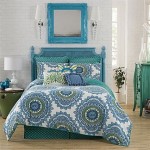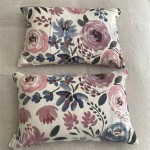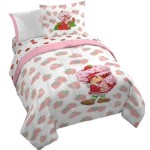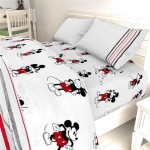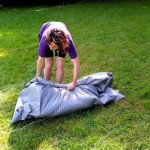Can Bedding Make You Sweat?
The feeling of waking up in a pool of sweat can be a frustrating and uncomfortable experience. While many factors can contribute to night sweats, your bedding choices might play a surprising role. Understanding the impact of bedding on your sleep temperature can help you create a more comfortable and restful sleep environment.
The Role of Fabric
The fabric of your bedding significantly affects your sleep temperature. Natural fibers like cotton, linen, and silk are breathable and allow air to circulate, promoting a cooler sleep environment. Cotton is a common and affordable choice, while linen is known for its exceptional breathability. Silk, while luxurious, is also highly breathable and moisture-wicking.
Synthetic materials like polyester and microfiber can trap heat and moisture, leading to a warmer sleep environment. These materials can also hold onto odors, potentially exacerbating perspiration. While these fabrics are often durable and wrinkle-resistant, they may not be the ideal choice for individuals prone to night sweats.
Thread Count and Weight
While thread count has long been associated with sheet quality, it plays a role in determining the fabric's weight and breathability. Higher thread count sheets, while typically softer and smoother, can also be denser, potentially trapping heat. Opting for lighter-weight fabrics or lower thread counts can improve ventilation, allowing for greater airflow and temperature regulation.
The weight of your blankets and comforters also impacts sleep temperature. Heavier blankets, like down or wool, can trap body heat, making it harder to stay cool during the night. Lighter blankets, such as those made from cotton or linen, are more breathable and suitable for warmer temperatures. Consider using multiple layers to adapt to changing temperatures throughout the night.
Other Factors
Beyond the choice of fabric and weight, other factors can contribute to a warmer sleep environment and potentially lead to night sweats. These include:
1. Mattress Type
Memory foam mattresses, known for their pressure-relieving properties, can trap body heat, making them less suitable for individuals who tend to sweat. Consider opting for a mattress with a breathable cover or a more cooling material like latex.
2. Room Temperature
Maintaining a cool room temperature is crucial for comfortable sleep. Aim for a temperature between 60-67 degrees Fahrenheit, as this range is optimal for most people.
3. Sleepwear
Loose-fitting, breathable pajamas made from natural fibers are recommended for cooler sleep. Avoid tight-fitting or synthetic fabrics that restrict airflow and trap heat.
4. Physical Activity Before Bed
Engaging in strenuous physical activity close to bedtime can elevate your body temperature, increasing the likelihood of night sweats. Allow for sufficient time to cool down before bed, and consider lighter activities like stretching or yoga instead.

Does A Mattress Protector Makes Me Sweat The Quickzip Sheet Company

Do Bamboo Sheets Make You Sweat

Answered Do Silk Sheets Make You Sweat Sinosilk

Night Sweats 101 What Bed Sheets Are Best For Parachute

Does A Waterproof Mattress Protector Make You Sweat

Night Sweats 101 What Bed Sheets Are Best For Parachute

What S Not Cool Puffy Hotel Duvets That Make You Sweat

Night Sweats Causes And Treatment Why You Might Be Sweating At

Do Silk Sheets Make You Sweat Muriersilk Luxury Scarves Bonnets Sleepwear Accessories

Night Sweats 101 What Bed Sheets Are Best For Parachute
Related Posts

